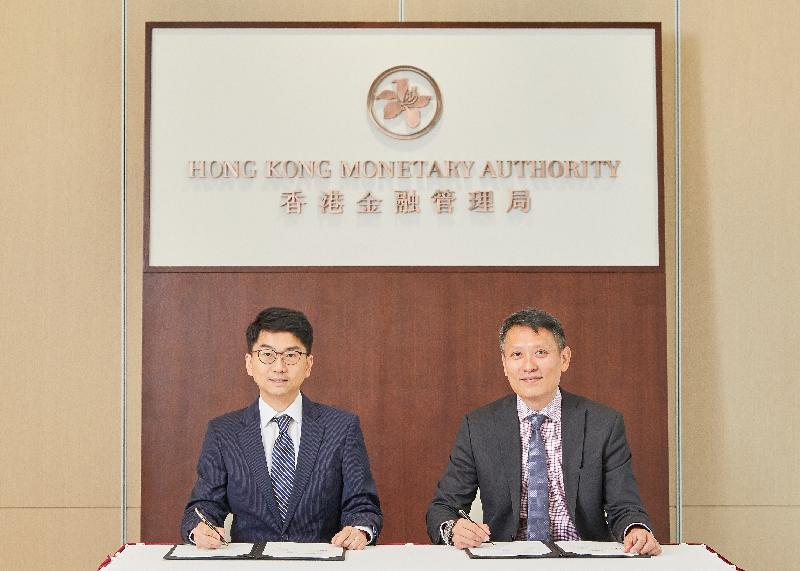Employers and employees should take precautions against heat stroke
As the Hong Kong Observatory has issued the Very Hot Weather Warning, the Labour Department (LD) reminds employers and employees to take appropriate precautions to prevent heat stroke when working in a hot or humid environment.
Heat stroke could occur if an employee works in a hot or humid environment for prolonged periods of time, as the body may fail to regulate its temperature by effective heat dissipation through sweating.
The early symptoms of heat stroke include feeling thirsty, fatigue, nausea and headache. Later, the victim may experience shortness of breath, rapid and weak pulse, dizziness, confusion or even loss of consciousness and convulsion.
For example, construction workers, cleaning workers, kitchen workers and porters are more prone to heat stroke when working for long hours in such an environment, especially if appropriate preventive measures have not been taken.
The LD reminds employers to arrange for a suitable assessment of the risk of heat stress in the work environment and take appropriate preventive measures. The LD has produced two leaflets entitled "Checklist for Heat Stress Assessment at Construction Sites" and "Checklist for Heat Stress Assessment at Outdoor Cleansing Workplaces" respectively. Employers engaged in construction or outdoor cleaning work are advised to refer to these checklists in assessing the risk of heat stress at their workplaces. As for heat stress assessment at a workplace in general, employers can refer to a booklet entitled "Risk Assessment for the Prevention of Heat Stroke at Work" produced by the LD.
The LD also reminds employers and employees to take the following precautions to prevent heat stroke:
Employers
———
(1) Take heed of the weather report and adopt shift work arrangements for employees to reduce their exposure to the hot environment, or arrange appropriate rest breaks for them during very hot periods;
(2) Avoid working under direct sunlight and set up temporary sunshade wherever possible;
(3) Provide cool potable water for employees at all times during work. If necessary, provide drinks containing minerals for employees to replenish loss of electrolytes during profuse sweating;
(4) Minimise physical demands by using tools or mechanical aids at work;
(5) Increase air flow by enhancing ventilation or air-conditioning as appropriate;
(6) Isolate heat-generating facilities at the workplace and use insulating materials to minimise heat dissipation to the other work areas; and
(7) Provide relevant information and training for employees on heat stroke such as preventive measures and first aid treatment.
Employees
———
(1) Wear clothing made of suitable materials (for example, cotton) that is loose-fitting and light-coloured to help heat dissipation, minimise heat absorption and allow sweat evaporation;
(2) Wear a wide-brimmed hat when working outdoors;
(3) Drink plenty of water or other appropriate beverages to replenish the fluids and electrolytes lost through sweating; and
(4) Whenever there are any symptoms of heat stroke, inform supervisors and take appropriate actions immediately.
Some employees may have difficulty in adapting to a hot working environment owing to their own health conditions. Employers should take this into account and consider the recommendations of their doctors when assigning work to these employees.
In addition to the publications on risk assessment, the LD has produced a leaflet entitled "Prevention of Heat Stroke at Work in a Hot Environment" for the public. The publications can be obtained free of charge from the offices of the Occupational Health Service of the LD, or downloaded from the department's webpage at www.labour.gov.hk/eng/public/content2_9.htm.
The LD organises occupational health talks in public places and at its own training venues regularly to raise employers' and employees' awareness of occupational health. Details of health talks on the prevention of heat stroke at work in a hot environment in July to September are as follows:
(A)
Dates: July 9 and 24; August 2, 13 and 30; and September 13 and 24 (am)
July 5, 20 and 30; August 8 and 22; and September 5, 20 and 27 (pm)
Time: Half-day
Venue: Occupational Safety and Health Training Centre of the Labour Department, 13/F, Kolour·Tsuen Wan I, 68 Chung On Street, Tsuen Wan, New Territories
(B)
Dates: July 13 and 27 and August 10 and 20
Time: Half-day, morning
Venue: Occupational Safety and Health Centre of the Labour Department, G/F,
Kwun Tong Community Health Centre Building, 60 Hip Wo Street, Kwun Tong
(MTR Kwun Tong Station Exit A1)
(C)
Date: August 13
Time: 3pm to 4.30pm
Venue: Lecture Hall, Hong Kong Space Museum, 10 Salisbury Road,
Tsim Sha Tsui, Kowloon (MTR Tsim Sha Tsui Station Exit E)
(D)
Date: July 16 and September 14
Time: 3pm to 4.30pm
Venue: Activity Room I, Hong Kong Central Library, 66 Causeway Road,
Causeway Bay, Hong Kong
(Opposite Victoria Park, MTR Tin Hau Station Exit B)
For enrolment or enquiries about these occupational health talks, please call 2852 4040 or 2361 8240 (for talks organised at the Occupational Safety and Health Centre). Moreover, the LD also provides an outreach health education service and occupational health nurses will, on invitation, disseminate occupational health information at workplaces at a convenient time. Please contact the nursing officer at 2852 4062 for details. All these health talks are free of charge.
